
Oral Thrush - General Info
Oral thrush is a medical condition caused by the fungus Candida albicans. It features with increased the multiplication of this fungus. The white patches which are made of Candida albicans coat the tongue or other parts of the oral cavity. In some cases there are no white patches but the affected parts of the oral cavity are erythematous and painful. Oral thrush usually affects the tongue and inner cheeks but it may also be found on other parts of the oral cavity including the roof of the mouth, gums, tonsils and the back of the throat.
Oral thrush may affect people of all age. Still, it predominantly occurs in babies, people who wear dentures, those who use inhalatory corticosteroids, and finally, this medical condition typically affects immunocompromized patients.
Treatment for Oral Thrush
The goal of the therapy is to stop multiplication of the fungi and consequent spread of the disease as well as alleviation of the accompanying symptoms.
Oral thrush in babies occurs if babies are breastfed. In this case both, the mother and the baby, are treated so that infection can be completely eradicated having no opportunity to be spread back and forth. Babies are usually prescribed mild antifungal medications while mothers need to apply antifungal creams onto their nipples. Proper hygiene of the breast pump and bottles is also essential for eradication of the infection.
Treatment for oral thrush in healthy adults and children include abstinence from certain foods which contribute to fungal multiplication. These people may also benefit from acidophilus capsules or liquid. Oral hygiene must be spotlessly maintained and in severe form of infection the doctor prescribes certain antifungal medications.
Treatment for thrush in immunocompromized people always includes antifungal medications which are available in several forms including lozenges, tablets and liquid form of the medication. Candida albicans may be rather resistant to many antifungal medications. This particularly affects people suffering from late-stage of HIV infection. The last option for highly resistant fungi is amphotericin B. Doctors are highly careful when it comes to administration of certain systemic antifungal medications because they may cause severe liver damage. This is why patients undergo blood tests and their liver function is monitored.Lifestyle Changes and Home Remedies for Oral Thrush
One must practice good oral hygiene. The teeth are supposed to be brushed after every meal and they need to be flossed at least once a day. Until the infection resolves it is recommendable to change toothbrush frequently. And one should not use mouthwash since it may interfere in the normal flora of the mouth.
Additional help may be obtained from warm saltwater rinses. 1/2 teaspoon of salt is dissolved in a cup of warm water. This solution is used only for rinsing and it must not be swallowed.
And finally, in women who are breastfeeding nursing pads may help in prevention against spread of the fungi from the clothes onto the nipples.


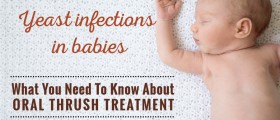
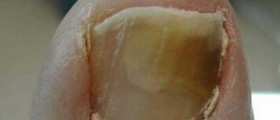



_f_280x120.jpg)


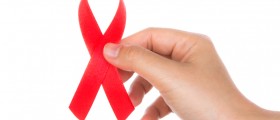
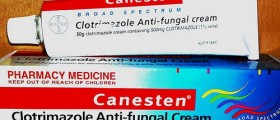


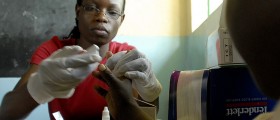
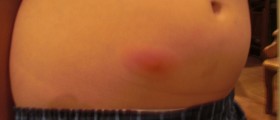
Your thoughts on this
Loading...